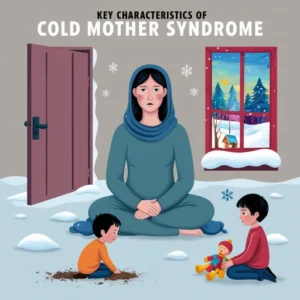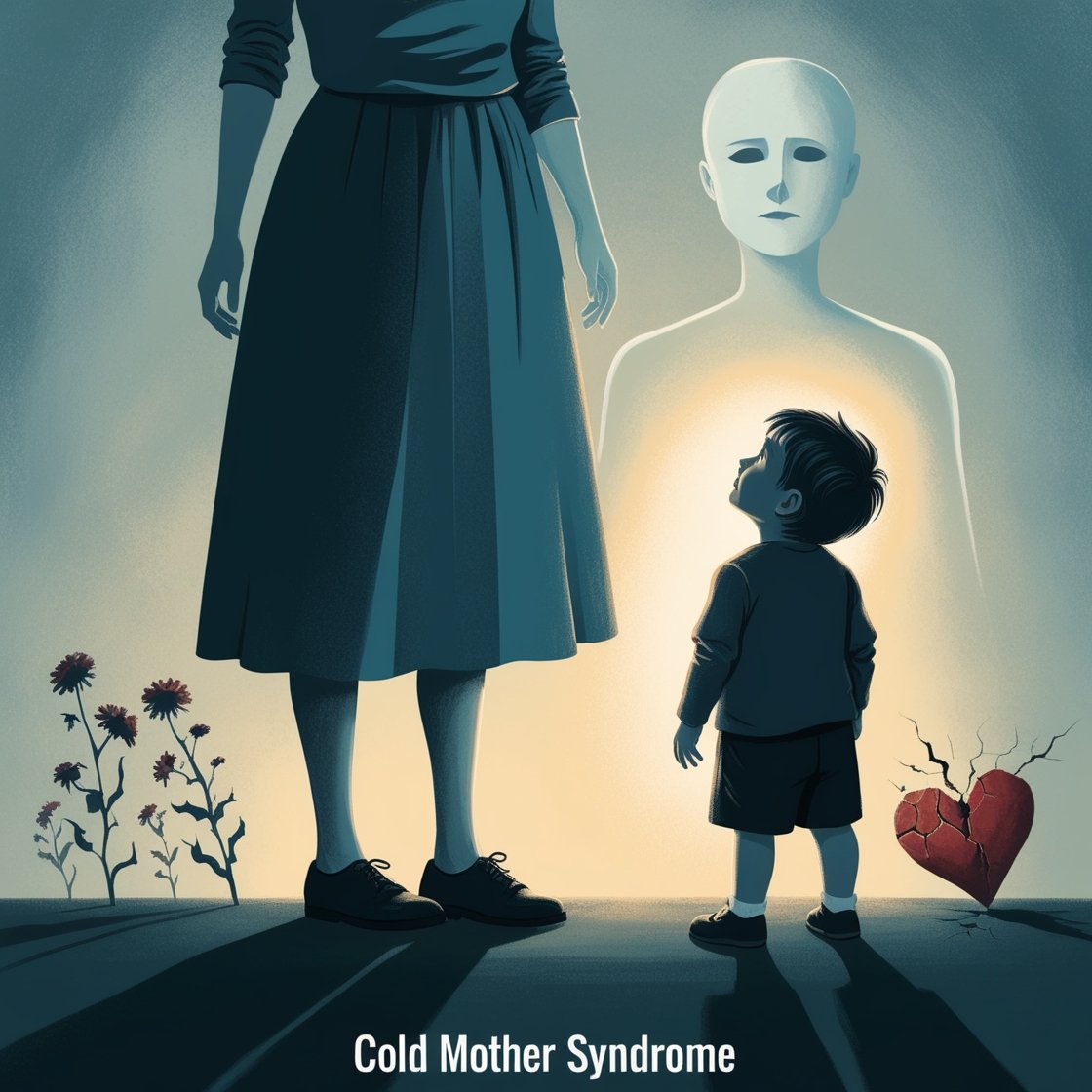Cold Mother Syndrome, also known as emotionally unavailable parenting, refers to a pattern of maternal behavior characterized by emotional detachment, a lack of nurturing, and minimal warmth in the relationship between a mother and her child. This phenomenon can leave lasting psychological effects on children, often continuing into adulthood. In this article, we will delve into the origins, manifestations, and repercussions of Cold Mother Syndrome, and explore strategies for healing from its impacts.
What Is Cold Mother Syndrome?
Cold Mother Syndrome is not a clinical diagnosis but a behavioral pattern often observed in certain parenting styles. It encompasses behaviors where the mother is emotionally distant, unresponsive, and sometimes outright neglectful toward her children. While the physical needs of the child may be met, their emotional needs are often ignored or minimized, leaving the child feeling undervalued and emotionally abandoned.
Mothers exhibiting this behavior may not necessarily be aware of their emotional unavailability. Several factors, including unresolved trauma, depression, or personality disorders like narcissistic personality disorder, can contribute to the development of these behaviors. In some cases, societal pressures and cultural norms that prioritize stoicism and emotional restraint can reinforce this kind of parenting.
Key Characteristics of Cold Mother Syndrome

- Lack of Emotional Warmth: Mothers with Cold Mother Syndrome tend to avoid displays of affection. Hugging, verbal affirmations, and other expressions of love are infrequent or nonexistent. This lack of warmth often leads the child to feel rejected and isolated.
- Emotional Neglect: Emotional neglect is a hallmark of Cold Mother Syndrome. This can manifest as the mother ignoring the child’s emotional needs, such as dismissing their feelings, avoiding conversations about emotions, or being unavailable for comfort in distressing situations.
- Rigid Parenting: Cold mothers often exhibit a rigid, controlling parenting style that leaves little room for emotional exploration or open communication. Children in these environments may grow up feeling stifled and afraid to express themselves freely.
- Perfectionism and Criticism: Another common trait is high levels of criticism and perfectionism. Cold mothers may expect their children to meet unrealistic standards, leading to chronic feelings of inadequacy and a diminished sense of self-worth in their children.
The Emotional Impact on Children
Children raised by emotionally distant mothers often face a range of emotional and psychological challenges that extend into adulthood. The long-term effects of Cold Mother Syndrome can affect one’s ability to form healthy relationships, maintain self-esteem, and even regulate their own emotions.
Low Self-Esteem and Self-Worth
The lack of maternal warmth often results in low self-esteem in children. A child who grows up feeling unloved or unworthy of affection may internalize these feelings, leading to negative self-perception. As they grow into adulthood, these individuals may struggle with self-worth, continually seeking external validation to fill the emotional void created during childhood.
Difficulty Forming Relationships
Children of emotionally unavailable mothers may have trouble forming close, meaningful relationships in their adult lives. The absence of nurturing during childhood often leads to attachment issues, making it difficult for them to trust others and establish secure bonds. They may be prone to avoidant attachment, where they shy away from emotional intimacy, or anxious attachment, where they become overly dependent on others for reassurance.
Perfectionism and Fear of Failure
Due to the high levels of criticism often imposed by cold mothers, children may develop perfectionistic tendencies as a way to seek approval. These individuals often grow up fearing failure and may exhibit anxiety when they are unable to meet certain expectations. This fear of failure can manifest in both personal and professional aspects of life, leading to chronic stress.
Emotional Dysregulation
Another effect of Cold Mother Syndrome is emotional dysregulation. Children who were not taught how to express or regulate their emotions may find themselves overwhelmed by negative emotions as adults. They may struggle to cope with stress, anxiety, or sadness in healthy ways, and could turn to unhealthy coping mechanisms such as substance abuse or emotional suppression.
Understanding the Root Causes
Cold Mother Syndrome is often rooted in the mother’s own unresolved emotional trauma or psychological conditions. Common underlying causes include:
- Unresolved Childhood Trauma: Mothers who experienced emotional neglect themselves may unconsciously replicate those behaviors with their own children.
- Depression: Clinical depression can cause emotional numbness, making it difficult for a mother to respond to her child’s emotional needs.
- Narcissistic Personality Disorder (NPD): Mothers with NPD often lack empathy, which can lead to emotionally distant or manipulative behavior towards their children.
- Cultural Expectations: In some cultures, emotional restraint is viewed as a virtue, and mothers may be discouraged from showing affection or vulnerability.
Healing from the Effects of Cold Mother Syndrome
Recovering from the effects of Cold Mother Syndrome is a challenging process, but it is possible. Both the individuals who experienced it and the mothers themselves can work toward healing through various methods.
Therapy and Counseling
Psychotherapy, especially cognitive-behavioral therapy (CBT) or trauma-focused therapy, can be effective in helping individuals who were raised by emotionally unavailable mothers. Therapy allows them to process their past experiences, develop healthier coping mechanisms, and rebuild self-esteem.
For mothers exhibiting the symptoms of Cold Mother Syndrome, therapy can help them recognize and address their emotional unavailability. Family therapy may also be beneficial in healing damaged relationships between the mother and child.
Developing Emotional Intelligence
One of the key steps toward healing is developing emotional intelligence. This involves learning how to recognize, understand, and manage one’s own emotions as well as empathize with the emotions of others. This process can help those affected by Cold Mother Syndrome build healthier relationships and improve their mental well-being.
Breaking the Cycle
For individuals who grew up with emotionally unavailable mothers, it is important to recognize these patterns and consciously work to avoid passing them on to the next generation. Parenting programs and support groups can offer valuable tools for breaking the cycle of emotional neglect and building a nurturing environment for future children.
Conclusion
Cold Mother Syndrome is a deeply impactful phenomenon that can leave long-lasting emotional scars. However, through self-awareness, therapy, and conscious effort, it is possible to heal from its effects and build a fulfilling life. Understanding the syndrome, recognizing its symptoms, and taking steps toward recovery are crucial for anyone affected by emotionally unavailable parenting.











